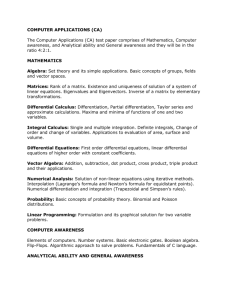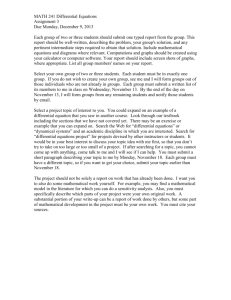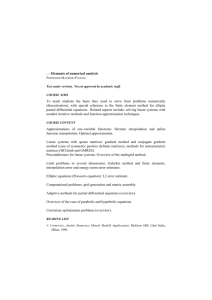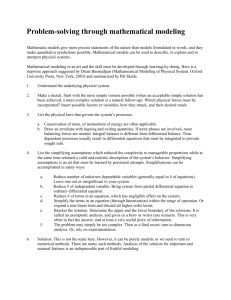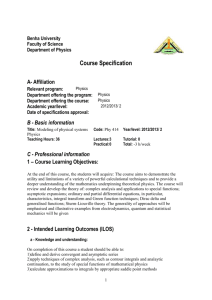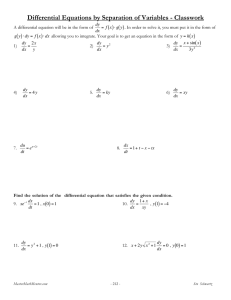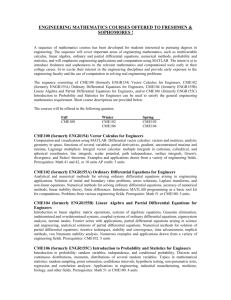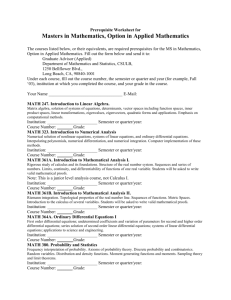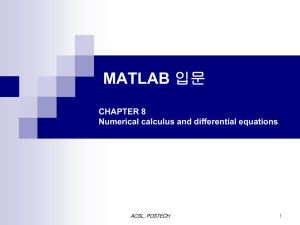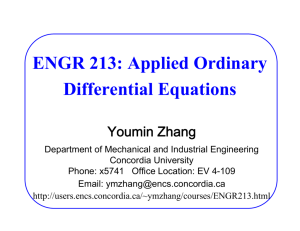A new sequence of mathematics courses has been developed for
advertisement
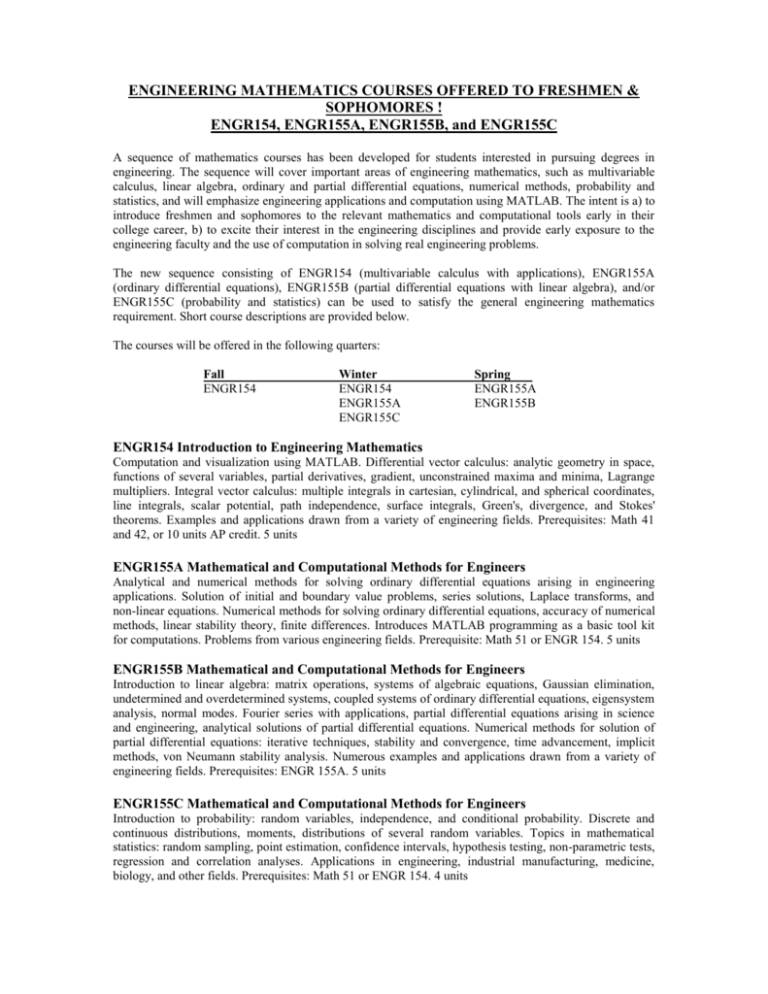
ENGINEERING MATHEMATICS COURSES OFFERED TO FRESHMEN & SOPHOMORES ! ENGR154, ENGR155A, ENGR155B, and ENGR155C A sequence of mathematics courses has been developed for students interested in pursuing degrees in engineering. The sequence will cover important areas of engineering mathematics, such as multivariable calculus, linear algebra, ordinary and partial differential equations, numerical methods, probability and statistics, and will emphasize engineering applications and computation using MATLAB. The intent is a) to introduce freshmen and sophomores to the relevant mathematics and computational tools early in their college career, b) to excite their interest in the engineering disciplines and provide early exposure to the engineering faculty and the use of computation in solving real engineering problems. The new sequence consisting of ENGR154 (multivariable calculus with applications), ENGR155A (ordinary differential equations), ENGR155B (partial differential equations with linear algebra), and/or ENGR155C (probability and statistics) can be used to satisfy the general engineering mathematics requirement. Short course descriptions are provided below. The courses will be offered in the following quarters: Fall ENGR154 Winter ENGR154 ENGR155A ENGR155C Spring ENGR155A ENGR155B ENGR154 Introduction to Engineering Mathematics Computation and visualization using MATLAB. Differential vector calculus: analytic geometry in space, functions of several variables, partial derivatives, gradient, unconstrained maxima and minima, Lagrange multipliers. Integral vector calculus: multiple integrals in cartesian, cylindrical, and spherical coordinates, line integrals, scalar potential, path independence, surface integrals, Green's, divergence, and Stokes' theorems. Examples and applications drawn from a variety of engineering fields. Prerequisites: Math 41 and 42, or 10 units AP credit. 5 units ENGR155A Mathematical and Computational Methods for Engineers Analytical and numerical methods for solving ordinary differential equations arising in engineering applications. Solution of initial and boundary value problems, series solutions, Laplace transforms, and non-linear equations. Numerical methods for solving ordinary differential equations, accuracy of numerical methods, linear stability theory, finite differences. Introduces MATLAB programming as a basic tool kit for computations. Problems from various engineering fields. Prerequisite: Math 51 or ENGR 154. 5 units ENGR155B Mathematical and Computational Methods for Engineers Introduction to linear algebra: matrix operations, systems of algebraic equations, Gaussian elimination, undetermined and overdetermined systems, coupled systems of ordinary differential equations, eigensystem analysis, normal modes. Fourier series with applications, partial differential equations arising in science and engineering, analytical solutions of partial differential equations. Numerical methods for solution of partial differential equations: iterative techniques, stability and convergence, time advancement, implicit methods, von Neumann stability analysis. Numerous examples and applications drawn from a variety of engineering fields. Prerequisites: ENGR 155A. 5 units ENGR155C Mathematical and Computational Methods for Engineers Introduction to probability: random variables, independence, and conditional probability. Discrete and continuous distributions, moments, distributions of several random variables. Topics in mathematical statistics: random sampling, point estimation, confidence intervals, hypothesis testing, non-parametric tests, regression and correlation analyses. Applications in engineering, industrial manufacturing, medicine, biology, and other fields. Prerequisites: Math 51 or ENGR 154. 4 units

